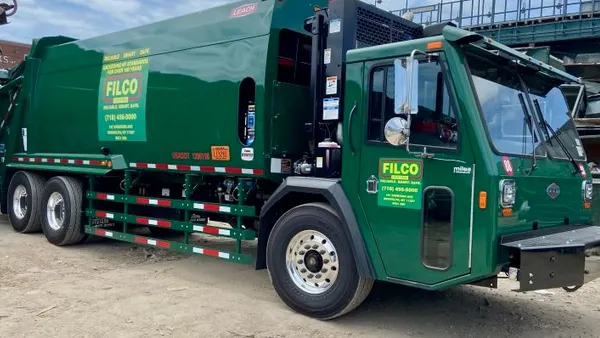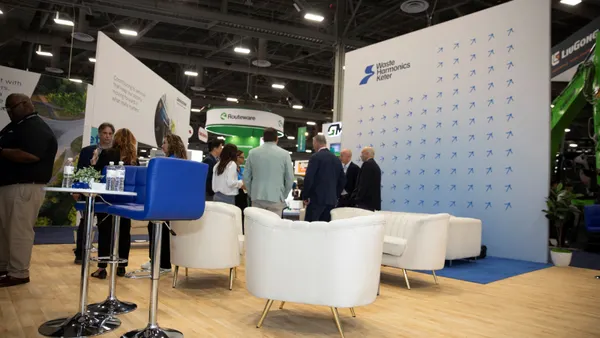Dive Brief:
- According to a new report from the Colorado Public Interest Research Group and Eco-Cycle, more than 57% of the material that Denver sends to landfills each year is compostable and the city can be doing more to change the equation. Municipal curbside organics collection is currently available to 6% of Denver residents, with no access in multi-unit buildings and limited commercial activity.
- The report argues that Denver isn't keeping pace compared to other major cities and offers five recommendations to advance organics diversion. These recommendations include promoting the goal of reducing food waste 50% by 2030, providing curbside organics collection to every household (with the fee built in to normal service bills rather than an optional add-on) and requiring all multi-family buildings to offer organics collection by 2025. Large restaurants with more than 10 employees would have diversion requirements as well. The report also recommends a requirement that any municipal projects would have to use the resulting compost before other material to help establish a strong local market.
- The report's authors estimate that expanding the city's composting program could generate about 70 new jobs, with total wages ranging from $1.1 million to $2.85 million per year. Creating a large processing infrastructure could also help other municipalities in the region start their own programs.
Dive Insight:
Though Denver has recently expanded access to curbside collections for recyclables and organics, the city's diversion rate remains around 20% and has not seen significant improvements in recent years. Compared to other cities in the state, and many others in the country, these below-average figures are a source of frustration for the local recycling community.
"Colorado has a reputation as being more of a green state, but if you look at our recycling rate statewide we're down at about 12%, which is pretty terrible and a lot of people are shocked to hear that," Kate Bailey, director of Boulder-based Eco-Cycle Solutions, told Waste Dive during a recent interview. "So we've really been looking at the city of Denver itself. If we're going to move Colorado forward we need to move the capital city forward."
According to the report that Bailey co-authored, thousands of U.S. cities have yard waste diversion programs and more than 200 are collecting food scraps in some form. While Denver has been offering curbside organics collection to select neighborhoods since 2009, the low cost of local landfills has made it economically challenging to justify expansion. The average tip fee at some sites can be as low as $20 per ton.
Yet at the same time the cultural and business climate for diversion is hospitable. Multiple local polls have shown residents are interested in organics diversion. Denver was part of a recent multi-city food waste characterization study run by the Natural Resources Defense Council and local recyclers continue to roll out new material recovery innovations at their facilities. As noted in the report, composting also has the additional benefits of carbon sequestration and improving soil quality.
Figuring out how to pay for the start-up costs involved in a large-scale curbside collection program can be difficult and even some of the most ambitious states such as Vermont have recently seen a need to slow down their implementation. One option is to follow the example of other large municipalities by mandating commercial organics diversion to create a more robust local composting market first and then expanding residential diversion in the future. Denver could also take the approach of cities such as New York by doubling down with residential collection at the same time and assuming the processing infrastructure will follow.










